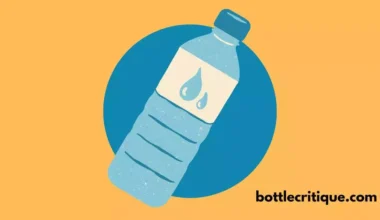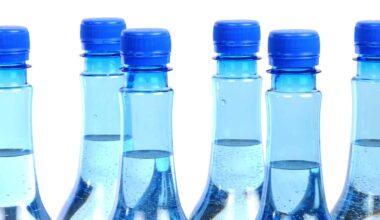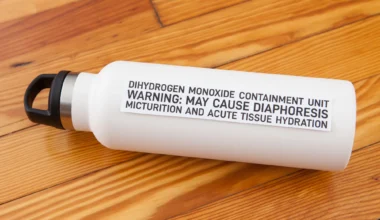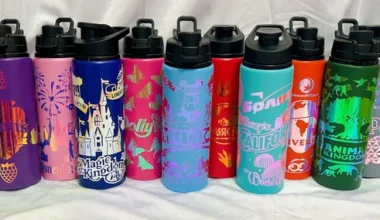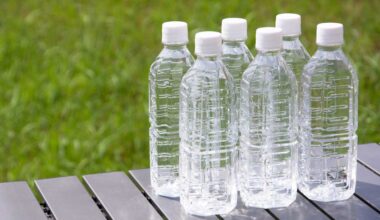Ever wondered about the cost of bottled water in Nigeria? Well, pull up a chair and stay a while, because we’re about to dive head first into the world of Naija’s hydration station. Whether you’re a local, a traveler, or just an inquisitive soul, we’ve got you covered.
“Water is the driving force of all nature.” – Leonardo da Vinci
And in Nigeria, it’s not just about quenching your thirst, it’s about doing it in style. With a myriad of brands and sizes to choose from, the bottled water market caters to all walks of life and all sizes of wallets.
So buckle up and keep those taste buds ready because we’re about to take a sip of the Nigerian bottled water scene!
Exploring the cost of bottled water in Nigeria
Ever wondered what a sip of thirst-quenching, icy-cold bottled water costs in Nigeria? Well, prepare for an adventure as we dive into the fascinating world of bottled water prices in this vibrant African nation.
Just like the diverse and pulsating culture of Nigeria, the price of bottled water varies widely. Factors such as brand, location, and bottle size all play a role in determining the cost.
The Cost Factor: Brand
The brand of bottled water is a prominent factor in its cost. High-end brands like Eva and Nestle Pure Life tend to be pricier, while more local brands like Ragolis and La Casera offer affordable alternatives.
The Cost Factor: Location
Location also influences the price of bottled water in Nigeria. In cosmopolitan cities like Lagos and Abuja, prices tend to be higher due to higher operational costs. However, in more rural areas, prices can be quite pocket-friendly.
The Cost Factor: Bottle Size
The size of the bottle is another key determinant. A 50cl bottle can cost as low as 100 Naira ($0.26), while a 1.5l bottle can go up to 200 Naira ($0.52).
In conclusion, the cost of bottled water in Nigeria isn’t a one-size-fits-all answer. It’s a playful dance of factors, each one playing its unique tune. So, the next time you’re in Nigeria and feel the touch of thirst, remember – your choice of where, what, and how big can make all the difference in the cost of your bottled water.
Why bottled water is a necessity for travellers in Nigeria
Imagine you’re traversing through Nigeria’s diverse landscapes, your thirst building with each scenic snapshot you take. You’d need a trusty sidekick in the form of a water bottle, wouldn’t you? Not to be the bearer of bad news, but tap water, while improving, isn’t always the safest bet in Nigeria.
Bottled water, on the other hand, is like your reliable “hydration hero”. It’s clean, accessible, and most importantly, safe. Your thirst quenching partner, always ready for your next adventure!
Remember, the joy of your journey shouldn’t be overshadowed by the worry of clean drinking water.
Still not convinced? Let’s dive into some crystal clear reasons why bottled water is a must-have for every traveller to Nigeria.
Health is Wealth
First and foremost, health. The quality of tap water can be inconsistent in Nigeria, making it a potential breeding ground for waterborne diseases. Bottled water, however, undergoes rigorous purification processes ensuring it’s safe to drink.
Ease of Availability
Next, availability. Whether you’re exploring bustling Lagos or the historic city of Kano, you’re never too far from a store selling bottled water. It’s like finding an oasis in the middle of a desert!
It’s All About Convenience
Last but not least, convenience. Bottled water is easy to carry around, making it a travel-friendly option. Plus, nothing beats the simplicity of popping open a bottle when you’re parched!
In essence, bottled water is more than a mere commodity for travellers in Nigeria, it’s a necessity. So, pack your bags, grab a bottle of water, and embark on your Nigerian adventure with peace of mind and a hydrated body.
Is bottled water the only safe drinking option in Nigeria?
Oh, the stories you might have heard about water safety in Nigeria! But let’s lay some myths to rest. Clean, safe drinking water isn’t exclusive to the humble bottle in Nigeria. You have other options too!
Who said the only route to quench your thirst in Nigeria is the bottled water way? Not on our watch!
Let’s start with the dispenser. Dispensers are super popular in Nigerian households and offices. They offer room temperature or chilled water at your convenience. And the best part? You’re not stuck with plastic waste every time you’re parched.
- Boiled Water: Grandma was right when she insisted on boiling water before drinking. It is the oldest trick in the book and pretty effective.
- Water Filters: Yep, they’re available in Nigeria too. Very handy, easy to use, and offer a reliable source of clean drinking water.
But what about when you’re exploring the bustling streets of Lagos or taking in the tranquil landscapes of Calabar? Fret not, the omnipresent hawker with a cooler of chilled sachet water (popularly known as pure water) has got you covered. It’s cheap, it’s convenient, and it’s a staple in Nigeria.
So, while bottled water is a safe bet, it’s not the only horse in this race. Whether you’re a local or a traveler, Nigeria’s got your hydration needs sorted!
Understanding the factors determine the cost of bottled water in Nigeria
Ever wondered why the cost of bottled water varies in Nigeria? Well, just like a well-choreographed dance, several factors twirl and leap together to determine the final price tag. Let’s take a quick dive into this fascinating world, shall we?
Location, Location, Location
Where you buy your bottled water in Nigeria plays a significant role in how much you’ll shell out. That bottle you snag in a high-end Lagos supermarket? It’s likely to cost more than what you’d find in a rural market. Geography impacts costs, folks!
The Brand Effect
Brand names aren’t just for fancy sneakers and designer clothes. When it comes to bottled water, the brand can significantly sway the price. Established brands with a solid reputation often charge more compared to lesser-known brands.
Size Matters
Now let’s talk about size. It’s pretty straightforward: the larger the bottle, the higher the cost. But surprisingly, you might find that buying in bulk can actually be cheaper per bottle. So, don’t shy away from that 1.5-litre bottle or that six-pack!
The Packaging Dance
Finally, let’s not forget the packaging. A lot of time, effort, and resources go into creating that perfect bottle. Fancy, eco-friendly packaging can ramp up the cost, while plain, simple packaging often means a lower price tag.
So there you go, folks! The next time you’re buying a bottle of water in Nigeria, you’ll know exactly what’s behind the pricing puzzle. Happy hydrating!
How to budget for bottled water when travelling to Nigeria
So you’re planning a trip to the vibrant heart of West Africa, Nigeria, and wondering, “How much would a bottle of water cost?” Well, rest easy, dear traveler, for we’ve got you covered. The average cost of bottled water in Nigeria is pegged around 100 to 150 Naira for a 75cl bottle. That’s about 0.26 to 0.39 USD, pretty affordable, isn’t it?
On a Budget:
- If you’re on a tight budget, your best bet is to buy in bulk. A pack of twelve 75cl bottles typically goes for about 1000 to 1200 Naira, around 2.60 to 3.12 USD. Now that’s a steal!
- Local brands are typically cheaper than imported ones, and just as refreshing!
Quality Conscious:
- For those who are a little more quality-conscious, premium brands can go up to 200 Naira (0.52 USD) per bottle.
Remember, staying hydrated is key, especially in Nigeria’s tropical climate. So, factor in at least 2-3 bottles per day in your budget.
Quick Price Comparison Table
| Item | Price in Naira | Price in USD |
|---|---|---|
| 75cl Bottle (Average Brand) | 100 – 150 | 0.26 – 0.39 |
| 75cl Bottle (Premium Brand) | Up to 200 | Up to 0.52 |
| 12 x 75cl Bottles (Bulk Buy) | 1000 – 1200 | 2.60 – 3.12 |
Whether you’re a budget backpacker or a premium globetrotter, there’s a hydration option for everyone in Nigeria. So go ahead, quench your thirst and satisfy your wanderlust!
The impact of climate change on water availability and cost in Nigeria
Picture this: You’re strolling down the bustling streets of Lagos, with the sun gleaming overhead. The need for a cold, refreshing bottle of water becomes more apparent with every passing second. However, ever wondered how climate change could be subtly influencing the cost of that thirst-quenching necessity?
The truth is climate change is not just a global buzzword; it’s a reality that is impacting the availability and cost of water in Nigeria. With increasing temperatures and erratic rainfall patterns, water resources are becoming increasingly scarce, leading to a hike in the price of bottled water.
- Increased temperatures mean increased evaporation rates, leading to a reduction in surface water resources.
- Erratic rainfall disrupts the water cycle, causing inconsistencies in water availability.
- Increased frequency of droughts and floods caused by climate change further depletes water resources, making it more expensive to source and purify water for bottling.
The climate change conundrum has led to a spike in the cost of bottled water. In Nigeria, a 75cl bottle of water that previously cost around ₦50 ($0.13) now ranges between ₦100 ($0.26) – ₦150 ($0.39), showing a significant leap.
Water, once considered a basic necessity, is gradually becoming a luxury due to climate change.
As you reach for that bottle of water, remember the hidden cost of climate change. It’s more than just a price tag—it’s about the sustainability of our planet.
Alternatives to bottled water in Nigeria: Are they safe?
Let’s dive right in, shall we? In a country where the sun often feels like a close neighbor, staying hydrated is paramount. So, what are your options aside from bottled water in Nigeria? And more importantly, are they safe?
Tap Water: Now, this might raise a few eyebrows, but yes, tap water is an alternative. The downside? In many areas across Nigeria, tap water is not safe for direct consumption due to contamination and poor sanitation. However, boiling tap water before drinking can help eliminate these risks.
Water Sachets: Ah, the famous “pure water” sachets! They’re everywhere in Nigeria, and for a good reason. They are affordable and convenient. But, there is a but, the hygiene standards during packaging can sometimes be questionable. Make sure you clean the surface before sipping!
Remember, safety is always in the details. Cleanliness can never be overrated when it comes to water consumption.
Water Dispensers: These are a popular option in offices and homes. They’re safe, as long as the water gallons are from a reputable brand. Check the seal before you load it up to ensure it hasn’t been tampered with.
Water Filters: From simple jug filters to complex under-sink systems, water filters can provide a safe and environmentally friendly alternative to bottled water. They remove impurities from tap water, making it safe to drink. However, they can be a bit pricey.
So, what’s the verdict?
Like everything in life, each alternative has its pros and cons. Ultimately, the safety of these alternatives hinges on careful usage and adherence to hygiene standards. Stay hydrated, but more importantly, stay safe!
The future of bottled water in Nigeria
Imagine a world where the glistening, transparent treasure we call bottled water is as common as the vibrant colors of a Nigerian market. That’s the future we’re looking at. The bottled water industry in Nigeria is steadily growing, matching its stride with the rhythm of the African drumbeat.
Why? You ask. Well, it’s a tale that combines the unique Nigerian spirit with the universal human need for clean, safe water. Let me share it with you.
The Nigerian populace is becoming more health-conscious every passing day. This growing awareness has become a melody, whispering through the bustling Nigerian cities and serene countryside, pushing the demand for bottled water to new heights.
But, there’s more to this story. The quality of tap water in Nigeria isn’t always up to snuff, leading many to turn to bottled water as a safer bet. This trend is not just a ripple, it’s a wave that’s propelling the bottled water industry forward.
- Now, this doesn’t mean everyone in Nigeria only drinks bottled water. The market is diverse, just like the country’s rich tapestry of cultures, languages, and landscapes.
Looking at the future, the forecast is clear: the bottled water industry in Nigeria is set to explode like a joyous festival of fireworks. As the demand for clean, safe drinking water continues to surge, so too will the market for bottled water.
So, what’s the bottom line? The future of bottled water in Nigeria is bright, bubbling with potential just like the precious liquid it delivers. Whether you’re a local, a traveler, or an entrepreneur, keep your eyes on this fluid frontier. It’s a fascinating journey, and we’re all aboard the bottled water express, heading straight into the future.
The social and economic implications of the bottled water industry in Nigeria
Imagine a bustling Lagos street corner. You’re thirsty and there’s no tap in sight. But hey, there’s a vendor with a cooler box crammed with bottled water. You flip out a crisp Naira note, quench your thirst and move on. Simple, right? Maybe not! There’s a depth to Nigeria’s bottled water industry that’s worth exploring.
The economic aspect is pretty straightforward. Bottled water is big business in Nigeria. With a population of over 200 million people and an inconsistent public water supply, the demand for bottled water is high. Local vendors sell bottled water at prices ranging from NGN 50 to NGN 200, depending on the brand and size.
Then you have the big players – companies like Coca-Cola and Nestle, who through their various brands like Eva and Nestle Pure Life, command a significant market share. These multinational corporations not only contribute to the country’s economy through their operations, they also provide employment opportunities.
But let’s not forget about the small to medium-scale bottled water producers. They might not have the clout of the big brands, but their contribution to Nigeria’s GDP and job creation can’t be overlooked.
“In Nigeria, bottled water is more than just a thirst quencher; It’s a thriving industry, a job creator, and an essential commodity.”
On the flip side, we have the social implications. With the high demand for bottled water comes the issue of waste management. Nigeria, like many other developing countries, struggles with effective waste disposal. The non-biodegradable nature of plastic bottles exacerbates the problem, leading to environmental pollution.
Moreover, there’s the concern about the quality of bottled water. Reports of unregulated and unhygienic production processes in some bottled water factories are unsettling. These issues underline the importance of stringent regulatory oversight to ensure public health and safety.
In conclusion, the bottled water industry in Nigeria is a double-edged sword. On one hand, it offers economic benefits and meets an essential need. On the other hand, it presents environmental and health challenges. Striking a balance between these opposing realities is the key to sustainable growth in this sector.
Bottled water vs tap water: Which is the better option for normal people and travellers in Nigeria?
Picture this: You’ve just touched down in Nigeria, and you’re feeling parched. You reach for a glass of tap water…or do you? The age-old debate of bottled water versus tap water springs to life again. Now, let’s dive into the depths of this discussion and see what bubbles up to the surface!
First, let’s tackle tap water. Nigeria’s tap water is subject to frequent contamination due to poor sanitation systems and infrastructure deficiencies. It may not be the safest choice for normal people living in the region, let alone travellers. It’s like playing Russian roulette with your gut, and nobody wants that!
Now, let’s pour over bottled water. It’s generally safer, of course, but it comes with a cost. The price of bottled water in Nigeria varies, starting from around 100 Naira (approximately $0.26) for a 75cl bottle. It’s not exactly going to break the bank, but it does add up over time, especially for those travelling on a tight budget.
But here’s the twist: not all bottled water is created equal. The quality can vary greatly based on the brand, so be sure to do your research. It’s like going on a treasure hunt for the best drinkable liquid gold!
In conclusion, bottled water is the safer bet in Nigeria, both for normal people and travellers. It might cost a bit more than tap water, but when it comes to health and safety, it’s a small price to pay. So, next time you find yourself in Nigeria, make sure to keep yourself hydrated with trusted bottled water!
Are there any health risks associated with drinking bottled water in Nigeria?
Oh, the tales of bottled water in Nigeria are as diverse as the 500-plus languages spoken in this beautiful country! While it’s generally safe, there are a few hiccups you should be aware of. So, let’s dive in, shall we?
Yes, we have cases where some unscrupulous individuals fill up bottles with unclean water, slap on a label, and sell it. Pretty sneaky, right? Luckily, this is more the exception than the rule. But still, a little caution never hurt anyone.
- Check the seal: If it’s broken or looks tampered with – let it go. There’s plenty more fish, or in this case, water, in the sea.
- Look at the water: If it appears cloudy or has floating particles – give it a pass. Clear is the name of the game here.
What about the health implications? Well, while improper handling and poor storage conditions can introduce harmful bacteria to the water, the majority of bottled water is perfectly safe.
Remember, when it comes to bottled water in Nigeria, it’s all about the details. So, stay vigilant, and stay hydrated!
Now, for those water connoisseurs out there, you know there’s more to water than just, well, water. Some brands add minerals for taste. While this isn’t harmful, it’s something to note for those watching their sodium intake.
So, in conclusion, while there are potential risks, with a bit of care, you can easily mitigate them. It’s like navigating the bustling markets of Lagos – a little attention goes a long way!
The role of government in regulating the production and distribution of bottled water in Nigeria
Oh, the Nigerian government! They play a pivotal role in the bottled water saga. They’re like the unseen yet impactful director of a blockbuster movie, orchestrating the production and distribution of bottled water in the country.
Beyond the legal jargon and formalities, their role can be broken down into three key areas:
- Regulation, which is basically setting the rules of the game. They determine what’s acceptable and what’s not in the bottled water industry. This goes beyond ensuring the water is safe to drink; it also involves regulating the materials used in the bottles, the labelling and advertisement, and the disposal of waste.
- Monitoring, which involves keeping an eye on the players in the industry. Are they playing by the rules? Are they using the right processes and materials? They’re the umpire ensuring fair play in the water bottling field!
- Enforcement, which is about taking action when the rules are broken. It’s not enough to have rules; they must be enforced. So, when a bottled water company steps out of line, the government steps in to set things right.
When you pop that bottled water cap, remember the invisible hands of the government that have worked to ensure that water is safe, affordable, and available. It’s a behind-the-scenes role, but truly, it’s a blockbuster!
Bottled water in Nigeria: A brief history and evolution of the industry
Hey there, parched traveler! Ever wondered how your trusty bottle of water came to be? Well, let me take you on a quick trip down memory lane to Nigeria’s bottled water industry. Buckle up!
The obsession with bottled water in Nigeria isn’t a recent phenomenon. Believe it or not, it’s been quenching thirsts since the 1980s. Back then, bottled water was seen as a symbol of status and wealth – far cry from today’s necessity.
Fast forward to the early 2000s, and Nigeria was bubbling in bottled water enterprises. The market was flooded with both local and international brands, offering Nigerians a deluge of options to choose from.
The real game-changer, however, was the introduction of sachet water in the mid-2000s. Suddenly, clean drinking water was accessible and affordable for everyone, not just the elite.
So, the next time you take a sip from your bottled water in Nigeria, remember its humble beginnings. It’s more than just a bottle of water; it’s a testament to Nigeria’s evolving socioeconomic landscape.

